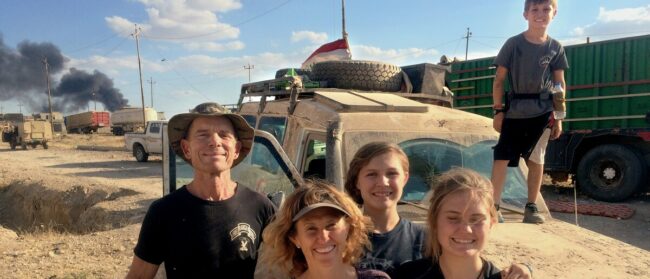This editorial was written by Pauline Tamesis on behalf of the UN Country Team in Cambodia.
On 10 December, the world will be celebrating International Human Rights Day. This year’s global celebration focuses on ensuring that human rights are at the heart of all efforts to build back better from the Covid-19 pandemic. In Cambodia, the United Nations celebrates International Human Rights Day by focusing on Cambodia’s young people’s right to create. By doing so, we address Cambodian youth’s aspirations to participate in efforts to create the future they want.
Seventy-two years ago, the United Nations General Assembly proclaimed the Universal Declaration of Human Rights. A historic achievement that underscored equal rights and freedoms for everyone. Over the past seven decades, the Universal Declaration of Human Rights inspired more than eighty international human rights treaties and declarations, the ASEAN Human Rights Declaration and domestic human rights frameworks.
As a proud member of the United Nations, Cambodia is a party to eight of the nine core international human rights treaties. Gains have been made, and Cambodian people now live longer, safer, and in a more dignified manner. However, at the same time, the road to the full realisation of the rights and freedoms embodied in international human rights treaties and Cambodian laws remains a work-in-progress.
All around the world, the Covid-19 pandemic has laid bare inequalities, hitting the poorest and most vulnerable communities the hardest. People who were already vulnerable, whose voices had been silenced and whose interests are rarely served by the political and economic processes and institutions are those who are worst harmed by the health, economic and social impacts of Covid-19. To save both lives and livelihoods, it is necessary to invest in universal health care and social protection, encourage participation and solidarity– prioritising the most vulnerable. Investment in economic and social rights yield resilience and foster more just, equal and sustainable societies.
Civil society participation is the lifeblood of any healthy democracy and society. When civil society channels flow freely, it means vibrant debate, freedom of thought and opinion, and public engagement in policy
With the world confronted by socio-economic consequences and human rights challenges posed by the pandemic, the United Nations is encouraging governments to ensure that people have a safe space to voice their views, share information and give feedback. Michelle Bachelet, United Nations High Commissioner for Human Rights, emphasises that, “Civil society participation is the lifeblood of any healthy democracy and society. When civil society channels flow freely, it means vibrant debate, freedom of thought and opinion, and public engagement in policy.”
The United Nations believes that a vibrant civil society is essential to building back better. Civil society organisations often fill spaces untouched by the government and private sector, as well as provide services to communities left behind. Society is stronger and more resilient when women and men can play a meaningful role in political, economic and social life, contributing to decisions that affects their lives and livelihoods, by accessing information, engaging in dialogue, expressing diverging views. A robust civil society promotes accountability and transparency that in turn facilitates better conduct of economic and social activities; thus, resulting in higher economic output and development progress.
On International Human Rights Day, the United Nations in Cambodia reaffirms its commitment to support the Royal Government and the Cambodian peoples’ efforts to build back better, based on the rights and principles from the Universal Declaration of Human Rights, many of which are enshrined in Cambodian legislation. Now, more than ever, we need to work together for a recovery that protects health, strengthens social cohesion, nurtures civic and democratic space, and focuses on human well-being alongside economic growth. Only by doing so will we achieve the Sustainable Development Goals and leave no one behind.
The Universal Declaration of Human Rights is as relevant today as it was 72 years ago. We all have to stand up for human rights to recover better and create the future we want.
Pauline Tamesis is the Resident Coordinator of the United Nations in Cambodia. The UN Country Team (UNCT) in Cambodia is composed of 27 specialised funds, programmes and agencies committed to accelerating the 2030 Agenda for Sustainable Development. For more information about the 2020 Human Rights Day celebrations, click here.


